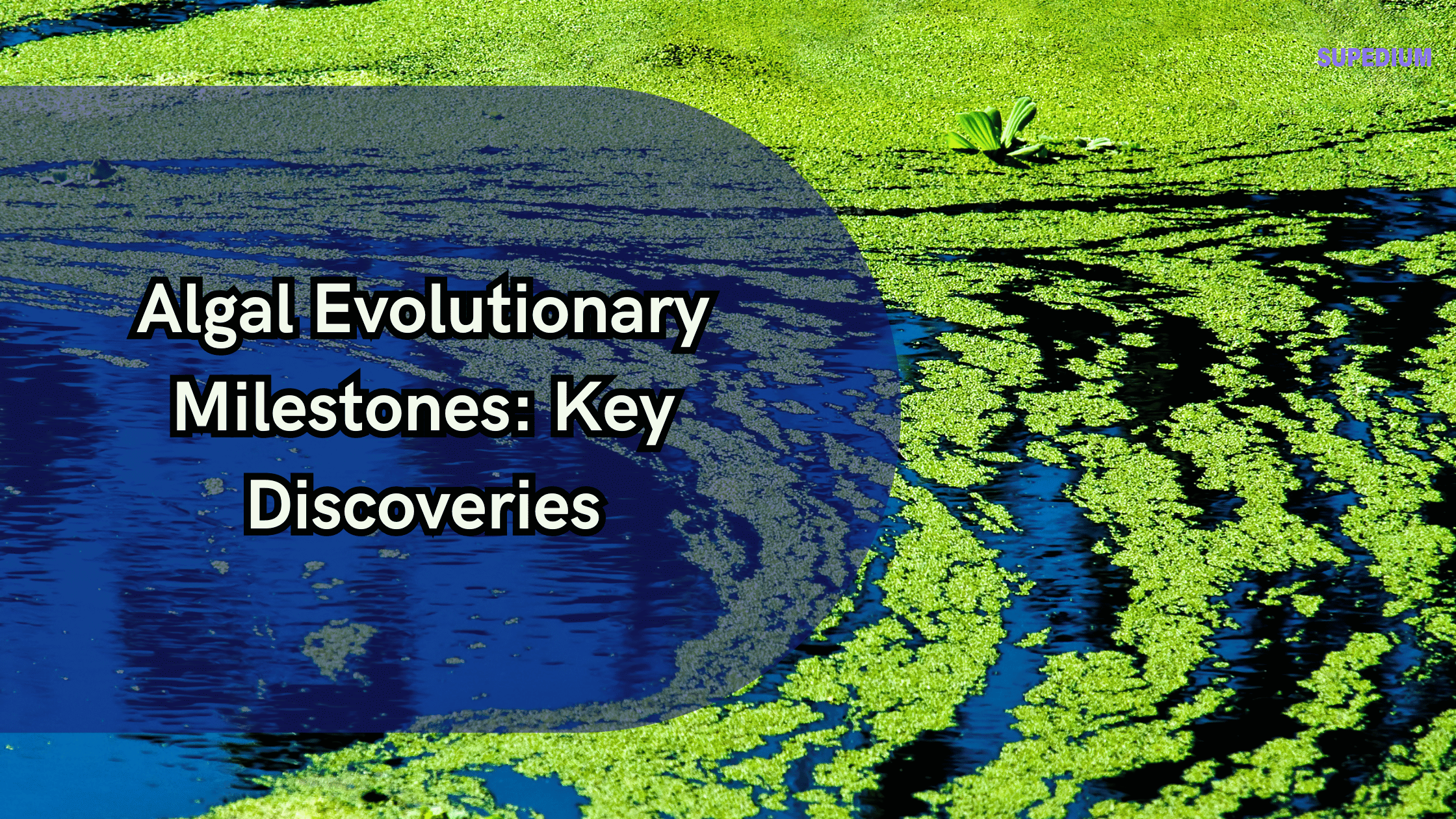Table of Contents
![]()
Introduction
Algae, a diverse group of photosynthetic organisms, play a crucial role in ecosystems across the globe. These organisms are not only fundamental to aquatic environments but also hold significant economic value in industries ranging from agriculture to biotechnology. Understanding the evolutionary milestones of algae provides insights into their current diversity and ecological roles.
Early Evolution of Algae
The story of algal evolution begins with the origin of photosynthesis, a process that transformed the Earth’s atmosphere and life forms. Photosynthesis is believed to have originated in cyanobacteria, a group of prokaryotic microorganisms capable of oxygenic photosynthesis. These early cyanobacteria were instrumental in the Great Oxidation Event, which dramatically increased the Earth’s oxygen levels and allowed for the development of aerobic life forms.
The emergence of early algal lineages is traced through both fossil records and molecular data. Fossil evidence, such as stromatolites, provides clues about ancient cyanobacterial mats. Molecular phylogenetics, which examines genetic relationships, reveals that the first eukaryotic algae likely evolved from endosymbiotic events involving cyanobacteria, marking a significant shift in the evolutionary trajectory of algae.
Major Evolutionary Milestones
One of the most critical evolutionary milestones for algae was the origin of eukaryotic algae through endosymbiosis. This process involved the engulfment of cyanobacteria by early eukaryotic cells, leading to the development of primary plastids—organelles responsible for photosynthesis. This event gave rise to the major algal groups, including Rhodophyta (red algae), Chlorophyta (green algae), and Glaucophyta.
The diversification of algal lineages continued with the phenomenon of secondary plastid endosymbiosis. This process involved eukaryotic algae engulfing other photosynthetic eukaryotes, resulting in the development of new algal groups such as the Chromalveolata. This diverse group includes diatoms, brown algae, and dinoflagellates, each exhibiting unique adaptations and ecological roles.
Adaptations to various environments have been a key driver in the evolution of algae. For instance, brown algae developed specialized structures such as holdfasts and flotation bladders to anchor and buoy themselves in marine environments. Similarly, green algae adapted to freshwater habitats with features like desiccation resistance and rapid reproductive strategies.
Key Discoveries in Algal Evolution
The advent of molecular phylogenetics has revolutionized our understanding of algal evolution. Genetic sequencing technologies have allowed scientists to construct detailed phylogenetic trees, revealing the relationships among different algal groups. These trees have clarified the evolutionary paths of major algal lineages and identified key genetic innovations.
Fossil evidence has also played a crucial role in elucidating algal history. Notable discoveries, such as ancient algal microfossils and preserved algal tissues, have provided timestamps for major evolutionary events. Fossils help date the divergence of algal lineages and trace the development of key physiological and morphological traits.
Evolutionary developmental biology (Evo-Devo) has offered new insights into how algal forms and functions have evolved. Comparative studies of algal developmental processes have uncovered how specific adaptations, such as the formation of complex multicellular structures, have contributed to the diversity observed in modern algae.
Implications of Algal Evolutionary Milestones
The evolutionary milestones of algae have significant ecological implications. Algae have shaped aquatic ecosystems by contributing to primary productivity, forming the base of food webs, and influencing nutrient cycles. The evolutionary adaptations of algae, such as the development of different pigmentation and nutrient storage mechanisms, have allowed them to occupy a wide range of ecological niches.
In biotechnology, knowledge of algal evolution has facilitated advancements in various applications. Algae are utilized in biofuels, pharmaceuticals, and environmental management. For example, the ability of certain algae to produce bioactive compounds is a direct result of their evolutionary adaptations, while their efficiency in carbon dioxide fixation is exploited in sustainable energy solutions.
Future Directions in Algal Research
Looking ahead, emerging techniques and technologies promise to further enhance our understanding of algal evolution. Omics technologies, including genomics and proteomics, are providing detailed insights into the molecular underpinnings of algal biology. Advanced imaging techniques and CRISPR-based gene editing are enabling researchers to explore the functional roles of specific genes and developmental pathways.
Despite these advancements, several research gaps remain. Areas requiring further investigation include the full extent of secondary plastid endosymbiosis and the evolutionary pressures that have shaped algal diversity. Addressing these questions could lead to significant breakthroughs in our understanding of algal evolution and their roles in ecosystems.
Conclusion
Tracing the evolutionary milestones of algae reveals a complex and dynamic history shaped by key events such as endosymbiosis and adaptive diversification. The insights gained from molecular phylogenetics, fossil records, and evolutionary developmental biology underscore the importance of continued research. By deepening our understanding of algal evolution, we can better appreciate their ecological roles and harness their potential in biotechnology.
Share This





Be the first to comment